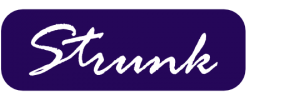On April 23, 2023, the OCC issued guidance on debit card transactions that are authorized positive, settled negative (APSN) and on re-presented NSF items. On the same date, the FDIC also issued guidance on APSN. Previously, on August 18, 2022, the FDIC had issued guidance on re-presented NSF items. The OCC and FDIC indicate that institutions following either of these practices risk violating Section 5 of the Federal Trade Commission Act which prohibits unfair or deceptive acts or practices and Section 1036 of the Dodd Frank Wall Street Reform and Consumer Financial Protection Act of 2010 which prohibits unfair, deceptive, or abusive acts or practices. The purpose of this bulletin is to summarize that guidance.
OCC Guidance
In terms of guidance related to APSN, the OCC has found that misleading disclosures contribute to findings that the APSN practice was unfair for purposes of Section 5. However, even when disclosures describe the circumstances under which consumers may incur overdraft fees, the OCC has found that overdraft fees charged for APSN transactions are unfair for purposes of Section 5 because consumers are still unlikely to be able to reasonably avoid injury.
With respect to re-presentment of NSF items, the OCC has found that disclosures may be deceptive, for purposes of Section 5, if they do not clearly explain that multiple or additional fees may result from multiple presentments of the same transaction. And again, even when disclosures explain that a single check or ACH transaction may result in more than one fee, a bank’s practice of assessing fees on each re-presentment may also be deemed to be unfair, for purposes of Section 5, if consumers cannot reasonably avoid the harm and the other factors for establishing unfairness under Section 5 are met (there is a representation, omission, act, or practice that is likely to mislead, the act would be deceptive from the perspective of a reasonable consumer, and the representation, omission, act, or practice is material). Their finding is that consumers typically have no control over when a returned ACH transaction or check will be presented again and lack knowledge of whether an intervening deposit will be sufficient to cover the transaction and related fees.
FDIC Guidance
The FDIC guidance is essentially the same as the OCC guidance, they just issued their guidance on re-presented items separately last August. In the April 23rd guidance on APSN the FDIC indicated that failure to take steps to avoid assessing overdraft related fees when transactions are authorized on positive balances but settle on negative balances results in ‘heightened risks” of violations of Section 1036 of the Dodd Frank Wall Street Reform and Consumer Protection Act of 2010. An act or practice is unfair when it (1) causes or is likely to cause substantial injury to consumers, (2) cannot be reasonably avoided by consumers, and (3) is not outweighed by countervailing benefits to consumers or to competition.
In their August 18, 2022, guidance they said violations of law occur when financial institutions charge multiple NSF fees for the re-presentment of unpaid transactions if disclosures do not fully or clearly describe the financial institution’s re-presentment practice, including not explaining that the same unpaid transaction might result in multiple NSF fees if an item was presented more than once. Practices involving the charging of multiple NSF fees arising from the same unpaid transaction results in heightened risks of violations of Section 5 of the Federal Trade Commission Act which prohibits unfair or deceptive acts or practices (UDAP). Therefore, if a financial institution assesses multiple NSF fees arising from the same transaction, but disclosures do not adequately advise customers of this practice, the misrepresentation and omission of this information from the institution’s disclosures is material and therefore deceptive. Also, a risk of unfairness may be present if multiple NSF fees are assessed for the same transaction in a short period of time without sufficient notice or opportunity for customers to bring their account to a positive balance to avoid the assessment of additional NSF fees. As a result, while revising disclosures may address the risk of deception, doing so may not fully address the unfairness risk.
In addition to the regulatory compliance risk, the FDIC also found that multiple NSF fee practices may result in heightened litigation risk. Numerous financial institutions, including some FDIC supervised institutions, have faced class action lawsuits alleging breach of contract and other claims because of the failure to adequately disclose re-presentment NSF fee practices.
If you would like more information on Strunk’s program, please contact us at info@strunkaccess.com or call 800-728-3116.


